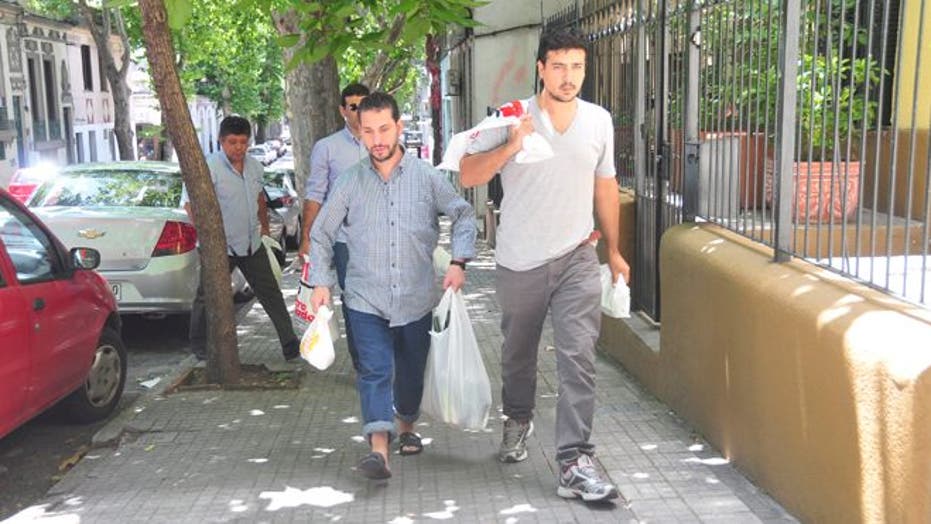The six former Guantanamo Bay detainees given refugee status in Uruguay spent their first real day of freedom since arriving in the country by hitting the streets of the capital of Montevideo to buy cellphones, Korans and new clothes.
The men, all accused of having terrorist ties with al-Qaeda or other violent groups, were released Thursday from the Military Hospital in Montevideo where they underwent a thorough medical check and are currently residing in a private home rented for them in the city. Photos taken by local media show the new refugees drinking mate, a traditional South American tea-like drink, and settling into a home draped with the Uruguayan flag.
"They're overwhelmed," Buz Eisenberg lawyer representing one of the men, Palestinean Mohammed Tahamatan, told AFP. "They've been in the worst conditions for 12 years. They have been kept isolated, have been treated like dogs, so freedom is an overwhelming condition."
"Walking through a country whose language you do not speak, where you do not know anyone and you have no clothes is overwhelming," he said.
Fernando Gambera, the leader of the PIT-CNT union that is helping the refugees, said that the men are working with the Uruguayan government to get all their documentation in order and bring their families to the Southern Cone nation.
"The goal is for them to be introduced into society and live as free men when their families come and be able to work," said Edgardo Oyenart, human rights secretary of the union.
The trade union that has helped the refugees since they arrived in the country also indicated that the former detainees will receive Spanish classes, vocational training and union training to help them adapt better to life in the South American country. Several companies have also apparently already offered work for refugees.
"The information I can give is that they are all well, work is underway and they will follow the same path of the remaining refugees in our country," Diego Canepa, deputy secretary for the country’s outgoing president José Mujica.
Besides the job help, the refugees will also have police protection 24/7 to ensure their safety.
"It's all been carefully planned by people who are specialized in this," National Defense Minister Eleuterio Fernández Huidobro told the Associated Press. "It took months of study."

